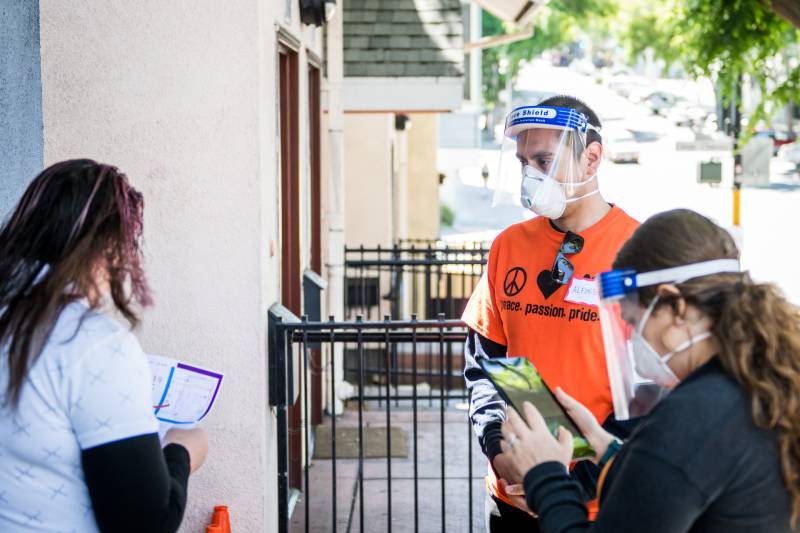While Jorge has insurance through his maintenance job at a seniors apartment complex in San Francisco, Lorena is not on his plan because the premiums are too expensive, she said.
But her family’s income, about $60,000 per year, means Lorena earns too much to qualify for Medi-Cal, the state’s coverage for low-income people.
Latinos Have Highest Uninsured Rates
Lorena's story is not uncommon. Latinos are more than twice as likely to be uninsured than other racial or ethnic groups in the state, according to a study by the UCLA Center for Health Policy Research. That’s in part because only about a third of Latinos get their health coverage through an employer, the lowest job-based coverage of all racial or ethnic groups.
As the pandemic continues, the state has committed to covering the cost of COVID-19 testing and treatment for uninsured Californians who need it. The demand for that safety net may increase as the pandemic ravages the economy, and millions of Californians lose their jobs and health coverage for themselves, their spouses and their children.
Still, it’s unclear how much medical treatment related to COVID-19 the state would ultimately pay for those who lack full coverage, said Anthony Wright, executive director of the consumer advocacy coalition Health Access California.
“Frankly, if you end up in the ICU on a ventilator for a week, it may not cover the follow-up care afterwards,” Wright said.
Lorena said she used to be covered by Medi-Cal in the past. She has received medical care for years at the Lifelong Brookside San Pablo Health Center. Now that she’s uninsured, she pays for medical visits at the community clinic on a sliding scale. That's where she, and eventually her children, were tested for COVID-19 free of charge.
In retrospect, Lorena said the risks of being uninsured weren’t top of mind while she was sick with the coronavirus, as her symptoms didn’t deteriorate.
During the nearly three weeks it took for Lorena and Jorge to recover, they tried to stay away from their kids at home to avoid getting them infected. Their 8-year-old girl took on more responsibilities, helping to feed the baby, change his diapers and carry him.
“Having to do things that she shouldn't be doing ‘cause she's a kid,” Lorena said.
Lorena said she was overcome with sadness as the baby would stare out of the window and then come towards her and ask to be picked up, holding his little arms up. She told herself, as emotionally hurtful as it may be, she would not touch or hold her children, even when they were afraid, sad or worried.

